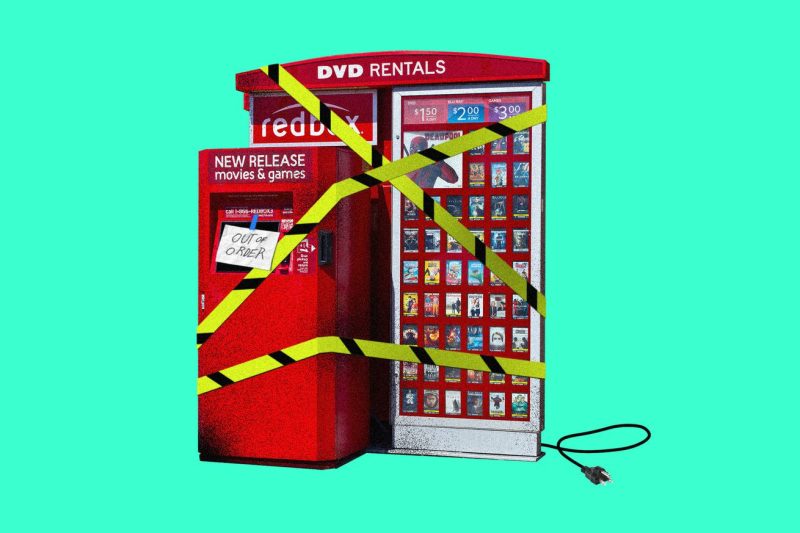Redbox is a well-known brand that has long been associated with convenient movie rentals through their ubiquitous red kiosks. However, recent changes in the industry have led to Redbox facing challenges that have sparked speculations and concerns about the future of the company.
One of the key reasons behind Redbox’s powering down is the shift in consumer behavior towards digital streaming services. With the increasing popularity of platforms like Netflix, Amazon Prime Video, and Hulu, many consumers are now opting for the convenience of streaming movies and TV shows online rather than renting physical DVDs or Blu-rays from kiosks. This trend has had a significant impact on Redbox’s business model, forcing the company to reassess its strategies to stay relevant in the face of rapidly evolving technology and consumer preferences.
Another factor contributing to Redbox’s decline is the decline in DVD and Blu-ray sales overall. As more and more consumers embrace digital formats, the demand for physical discs has been steadily decreasing. This has affected the availability of new movie releases in Redbox kiosks, as studios are now prioritizing digital distribution over physical media. As a result, Redbox has had to adjust its offerings and pricing to cater to a dwindling market for physical rentals.
Additionally, the COVID-19 pandemic has accelerated the shift towards digital entertainment consumption. With restrictions on physical gatherings and the closure of many public spaces, including Redbox kiosks in some areas, consumers have turned to streaming services as a primary source of entertainment during lockdowns. This increased reliance on digital platforms has further marginalized the role of physical rental services like Redbox, leading to a decline in revenue and relevance for the company.
In response to these challenges, Redbox has been exploring new initiatives to adapt to the changing landscape of the entertainment industry. One of these initiatives includes expanding its digital streaming service, Redbox On Demand, to compete with established players in the market. By offering a wider selection of movies and TV shows for online rental or purchase, Redbox is seeking to leverage its brand recognition and customer base to carve out a niche in the digital streaming space.
Furthermore, Redbox has been focusing on diversifying its offerings beyond traditional movie rentals. The company has been experimenting with new services such as video game rentals and live event ticketing to appeal to a wider audience and generate additional streams of revenue. These strategic moves are aimed at expanding Redbox’s reach and relevance in an increasingly competitive and digital-centric entertainment landscape.
In conclusion, Redbox’s decision to power down reflects the broader challenges facing traditional rental services in the age of digital streaming. By adapting its business model and exploring new opportunities in the digital space, Redbox is striving to stay afloat amidst significant changes in consumer behavior and industry dynamics. Whether these efforts will be enough to secure Redbox’s future remains to be seen, but the company’s willingness to innovate and evolve bodes well for its resilience in the face of adversity.
